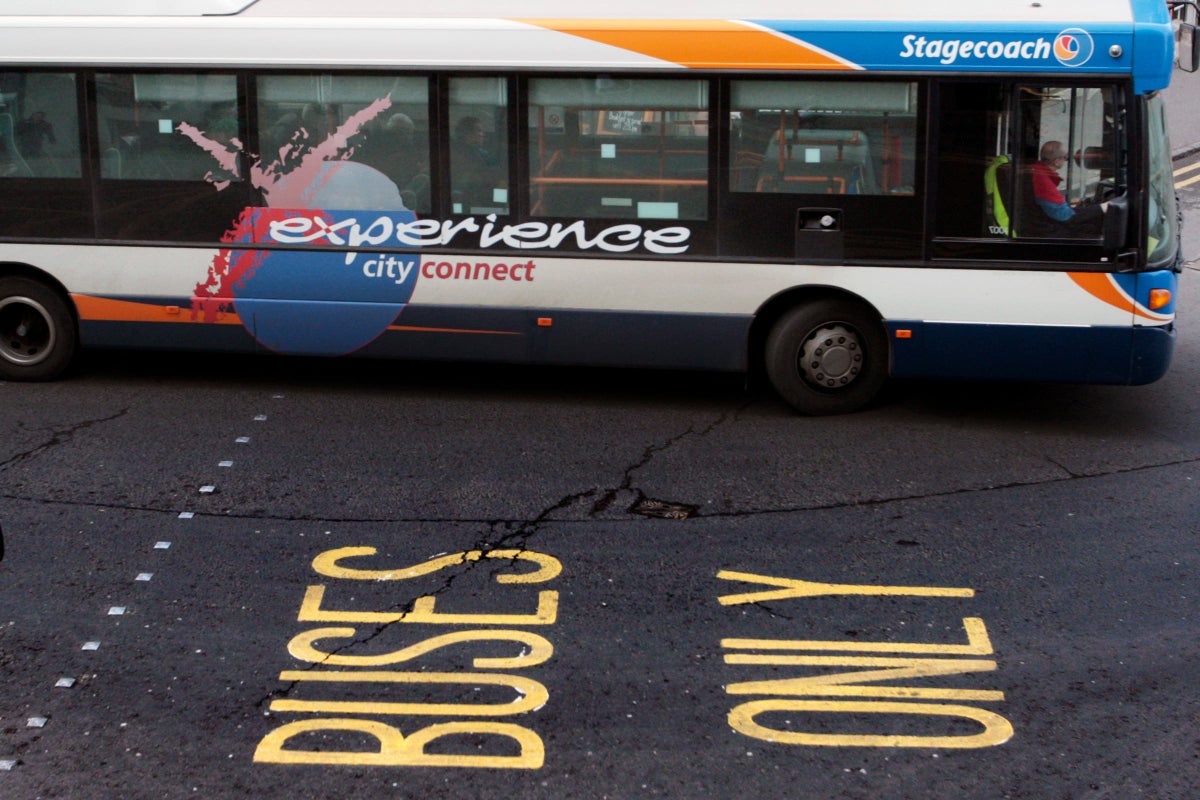Effective Strategies for Marketing a Small Business Locally and Building Community Connections

Key Takeaways

- Understanding Local Marketing: Local marketing aims to engage consumers within your community, enhancing business visibility and fostering customer loyalty through targeted strategies and promotions.
- Importance of Local SEO: Utilizing local SEO techniques like optimizing your Google My Business listing and using local keywords significantly improves your online presence, helping potential customers find you easily.
- Engaging with the Community: Participating in local events, forming partnerships with nearby businesses, and creating local promotions strengthens your brand presence and establishes meaningful connections with customers.
- Consistent Branding: Maintaining uniformity in branding across all platforms builds recognition and trust among local customers, ultimately driving loyalty and enhancing your business’s credibility.
- Measuring Success: Utilizing key performance indicators (KPIs) like Google My Business Insights and customer retention rates enables you to assess the effectiveness of your marketing strategies and make informed adjustments as needed.
In today’s competitive landscape, marketing your small business locally is more crucial than ever. You’ve got a unique product or service, but how do you make sure your community knows about it? The right strategies can help you connect with local customers and build a loyal following.
Local marketing isn’t just about traditional advertising. It’s about leveraging your community’s strengths and engaging with customers in meaningful ways. From social media to local events, there are countless opportunities to showcase your brand and attract attention. Let’s explore effective tactics that can elevate your small business and make a lasting impact in your neighborhood.
Understanding Local Marketing

Local marketing focuses on targeting consumers within your community, ensuring your small business effectively engages local customers. This strategy prioritizes your neighborhood, fostering deeper connections and loyalty.
Definition of Local Marketing
Local marketing involves promotional efforts directed toward a specific geographic area. It encompasses tactics like local search engine optimization (SEO), community engagement, and online presence enhancement. By optimizing your listings on platforms such as Google My Business and Yelp, you increase visibility for your target market. Local marketing also integrates traditional methods like flyers, brochures, and direct mail with modern techniques like social media marketing and geotargeting to reach local audiences effectively.
Importance of Local Marketing for Small Businesses
Local marketing is crucial for small businesses aiming to thrive in their communities. It boosts brand awareness and fosters customer loyalty through consistent engagement. Benefits include:
- Increased Visibility: Strong local SEO positions your business in local search results, making it easier for potential customers to find you.
- Community Engagement: Participating in local events or sponsorships enhances your visibility and establishes your presence in the neighborhood.
- Cost-Effective Advertising: Local advertising typically requires lower budgets compared to nationwide campaigns, maximizing your marketing strategy’s return on investment.
- Reputation Management: Encouraging Google reviews and managing online reviews impacts perceptions positively, enhancing customer trust in your brand.
- Targeted Promotions: Creating local promotions and loyalty programs via email marketing and social media allows you to reach the right audiences directly.
By leveraging these elements, your small business can successfully navigate the competitive landscape and foster lasting relationships with local customers.
Strategies for Marketing a Small Business Locally

Emphasizing local marketing strategies can effectively enhance your small business’s visibility and foster customer loyalty. Consider these focused approaches:
Utilizing Social Media Platforms
Employ social media marketing to connect with your target market. Platforms like Facebook and Instagram offer advertising options, such as Facebook Ads, that enable precise audience targeting. Create engaging content that showcases your products, services, and local involvement. Simplify customer interaction by responding to queries and comments, thus building community engagement and brand loyalty.
Leveraging Local SEO Techniques
Invest in local SEO to improve your online presence. Claim and optimize your Google My Business listing to ensure accurate information, including address, hours, and contact details. Utilize local keywords in your website content and metadata to increase your visibility in local search results. Cultivating online reviews on platforms like Yelp can also boost your reputation while encouraging word-of-mouth referrals.
Engaging with the Community
Engage with your local community through sponsorships, partnerships, and small business events. Form alliances with nearby businesses for cross-promotion, increasing exposure for both parties. Participate in local events to showcase your offerings and connect with residents. Creating local promotions, such as loyalty programs or neighborhood marketing campaigns, fosters strong relationships and enhances customer retention.
Building a Strong Brand Presence

Building a strong brand presence involves effectively engaging with your local community and establishing a recognizable identity. Your brand should reflect the culture, values, and spirit of the area where you operate.
Consistency in Branding
Consistency in branding enhances your small business’s visibility and credibility. Ensure your branding elements, including logos, color schemes, and messaging, remain uniform across all platforms. This consistency fosters recognition among your target market. Utilize local SEO techniques to improve visibility on platforms such as Google My Business, ensuring that your business information remains accurate and up-to-date across local listings. Engage consistently on social media channels like Facebook and Instagram for business, posting regular content that aligns with your brand image. Consistency builds trust, ultimately driving customer loyalty.
Creating Local Partnerships
Creating local partnerships strengthens your brand presence and fosters community engagement. Collaborate with nearby businesses to develop cross-promotion strategies, enhancing your reach within the local market. Consider sponsoring local events, which increases brand visibility while demonstrating your commitment to the community. Partnering with local influencers or engaging in neighborhood marketing can effectively amplify word of mouth about your business. Building these relationships contributes to a supportive network that boosts your brand awareness and customer retention through shared marketing efforts. Your active involvement in local initiatives not only reinforces your brand but also connects you deeply with your community.
Measuring Marketing Success

Measuring marketing success is crucial for understanding the effectiveness of your local strategies. Utilizing specific metrics helps you assess your impact on the community and adjust your tactics when necessary.
Key Performance Indicators (KPIs)
Selecting the right KPIs allows you to quantify your local marketing efforts. Focus on metrics that directly align with your objectives. Examples include:
- Google My Business Insights: Track views, searches, and actions taken on your listing to gauge visibility and engagement.
- Customer Acquisition Cost: Analyze how much you spend to acquire a customer through local promotions and advertising.
- Conversion Rates: Measure the percentage of leads that turn into actual sales, helping you evaluate the effectiveness of your local advertising efforts.
- Customer Retention Rate: Determine the percentage of customers who return, indicating the strength of your brand loyalty programs and community engagement initiatives.
Analyzing Customer Feedback
Customer feedback provides valuable insights into your marketing effectiveness. Actively analyze reviews and testimonials across platforms like Yelp and Google Reviews. Utilize feedback to:
- Adjust Marketing Strategies: Use constructive criticism to enhance your offerings and tailor your messaging to better resonate with your target market.
- Identify Trends: Recognize patterns in customer preferences and behaviors from feedback, helping you refine local promotions and social media marketing.
- Enhance Community Engagement: Respond to reviews to show that you value customer input. This builds trust and encourages word of mouth, enhancing your local reputation.
Incorporating these measures into your marketing strategy fosters transparency and drives continual improvement, resulting in stronger connections with your local community.
Conclusion

Embracing local marketing is essential for your small business to thrive in today’s competitive landscape. By leveraging community strengths and engaging with customers through targeted strategies, you can foster loyalty and build lasting relationships.
Investing in local SEO and maintaining an active online presence will enhance your visibility and credibility. Remember to engage consistently with your community through events and partnerships, as these connections are invaluable.
By measuring your marketing success and adapting your strategies based on feedback, you’ll not only navigate challenges but also create a supportive network that drives growth. Prioritize local marketing and watch your business flourish within your community.
Frequently Asked Questions

What is local marketing for small businesses?
Local marketing focuses on promoting products or services to consumers within a specific geographic area. It helps small businesses build customer loyalty, enhance visibility, and engage more effectively with their communities through targeted strategies.
Why is local SEO important?
Local SEO is crucial because it improves a business’s visibility in local search results. By optimizing their online presence, such as Google My Business listings, small businesses can attract more local customers, drive foot traffic, and increase sales.
How can social media support local marketing?
Social media platforms like Facebook and Instagram can enhance local marketing by allowing businesses to engage with their community, share targeted ads, and promote local events. This engagement fosters deeper connections and encourages customer loyalty.
What role do local events play in marketing?
Participating in local events allows businesses to engage with their community directly. Sponsoring or attending such events fosters relationships, promotes brand visibility, and encourages word-of-mouth marketing, ultimately leading to increased customer retention.
How can small businesses measure marketing success?
Small businesses can measure the success of local marketing strategies by tracking Key Performance Indicators (KPIs) like Google My Business Insights, Customer Acquisition Cost, and Customer Retention Rate. Analyzing customer feedback also helps refine marketing efforts.
Why is branding important for local businesses?
A strong brand presence enhances credibility and visibility within the community. Consistent branding—reflecting local culture and values—builds trust and loyalty, making it easier for customers to recognize and connect with the business.
How can partnerships strengthen local marketing?
Establishing partnerships with nearby businesses and local influencers can amplify marketing efforts through cross-promotion and shared resources. These collaborations enhance brand visibility and foster community engagement, driving customer loyalty.
What are the best strategies for local engagement?
Effective strategies for local engagement include hosting or sponsoring local events, optimizing online business listings, engaging on social media, and using targeted promotions. These activities strengthen relationships and enhance a business’s local presence.
Image Via Envato
This article, "Effective Strategies for Marketing a Small Business Locally and Building Community Connections" was first published on Small Business Trends
What's Your Reaction?
 Like
0
Like
0
 Dislike
0
Dislike
0
 Love
0
Love
0
 Funny
0
Funny
0
 Angry
0
Angry
0
 Sad
0
Sad
0
 Wow
0
Wow
0






























































































